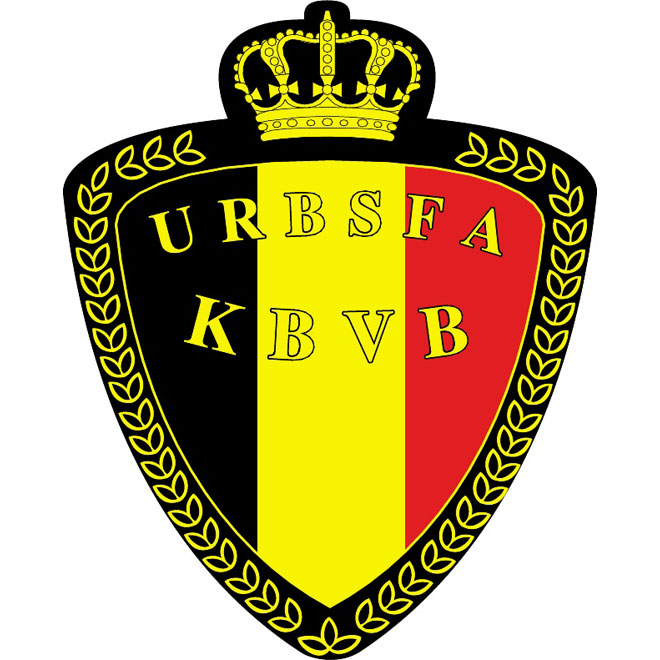“The Enduring Impact of Football on Belgian Society
Related Articles The Enduring Impact of Football on Belgian Society
The Enduring Impact of Football on Belgian Society

Football, or soccer as it is known in some parts of the world, is more than just a game; it is a cultural phenomenon that transcends borders and unites people from all walks of life. In Belgium, football holds a special place in the hearts of its citizens, shaping the nation’s identity, economy, and social fabric in profound ways. This article delves into the multifaceted impact of football on Belgian society, exploring its historical roots, economic significance, social cohesion, and cultural influence.
A Historical Overview
The history of football in Belgium dates back to the late 19th century when the sport was introduced by British expatriates. The first Belgian football club, Antwerp FC, was founded in 1880, and the Royal Belgian Football Association (RBFA) was established in 1895. These early developments laid the foundation for a vibrant football culture that would flourish in the decades to come.
The Belgian national team, known as the Red Devils, has a long and storied history, marked by periods of both triumph and tribulation. The team’s first major success came in 1920 when they won the gold medal at the Antwerp Olympics. However, it was not until the 1980s that Belgian football truly came of age, with the Red Devils reaching the final of the 1980 European Championship and the semi-finals of the 1986 World Cup.
Economic Impact
Football has a significant economic impact on Belgium, generating revenue through various channels, including ticket sales, merchandise, sponsorships, and media rights. Professional football clubs are major employers, providing jobs for players, coaches, staff, and stadium workers. The football industry also supports a wide range of related businesses, such as sports equipment manufacturers, hospitality providers, and transportation services.
The economic impact of football extends beyond the professional level. Grassroots football clubs play a vital role in local communities, providing opportunities for young people to participate in sports and develop valuable life skills. These clubs often serve as social hubs, bringing people together and fostering a sense of community pride.
Social Cohesion
Football has a remarkable ability to unite people from diverse backgrounds, transcending social, economic, and cultural divides. In Belgium, football fans come from all walks of life, united by their shared passion for the game. Football matches provide a platform for people to come together, celebrate their common identity, and forge lasting bonds.
The Red Devils, in particular, have become a symbol of national unity, bringing together Belgians from different regions and language groups. When the national team plays, the entire country rallies behind them, putting aside their differences and celebrating their shared Belgian identity. This sense of national unity is especially important in a country with a complex political and social landscape.
Cultural Influence
Football has a profound cultural influence on Belgian society, shaping the nation’s identity, values, and traditions. The sport is deeply ingrained in the Belgian psyche, and football-related conversations are a common occurrence in everyday life. Football players are often seen as role models, inspiring young people to pursue their dreams and strive for excellence.
Football also influences Belgian art, music, and literature. Many artists have drawn inspiration from the sport, creating works that capture the passion, drama, and excitement of football matches. Football chants and songs are an integral part of Belgian football culture, creating a vibrant and festive atmosphere at stadiums and public gatherings.
Challenges and Opportunities
Despite its many positive impacts, football in Belgium also faces several challenges. One of the most pressing issues is hooliganism, which has plagued the sport for many years. While efforts have been made to combat hooliganism, it remains a concern for authorities and fans alike.

Another challenge is the increasing commercialization of football, which has led to concerns about the sport’s integrity and accessibility. As football becomes more and more lucrative, there is a risk that it will become detached from its roots and lose its connection with ordinary fans.
However, there are also many opportunities for football to continue to contribute to Belgian society. By investing in grassroots football, promoting diversity and inclusion, and addressing issues such as hooliganism and corruption, football can become an even more positive force in the country.
Conclusion
Football has had a profound and lasting impact on Belgian society, shaping the nation’s identity, economy, social fabric, and cultural landscape. From its historical roots to its modern-day challenges and opportunities, football remains an integral part of Belgian life. By recognizing the importance of football and working to address its challenges, Belgium can ensure that the sport continues to bring people together, promote social cohesion, and inspire future generations.
Specific Examples of Impact
To further illustrate the impact of football on Belgian society, here are some specific examples:
- The "Golden Generation": The success of the Belgian national team in recent years, particularly the so-called "Golden Generation" of players like Eden Hazard, Kevin De Bruyne, and Romelu Lukaku, has had a significant impact on national pride and morale. The team’s performances in major tournaments have brought the country together and generated a sense of optimism and excitement.
- Community Engagement: Many professional football clubs in Belgium are actively involved in community engagement initiatives, working to address social issues and promote positive change. These initiatives include programs for youth development, education, and health, as well as efforts to combat discrimination and promote social inclusion.
- Tourism: Football tourism is a significant contributor to the Belgian economy, attracting visitors from around the world to attend matches and experience the country’s football culture. Major tournaments, such as the European Championship and the World Cup, can generate substantial revenue for the tourism industry.
- Media Coverage: Football receives extensive media coverage in Belgium, with newspapers, television channels, and radio stations dedicating significant resources to reporting on the sport. This media coverage helps to raise awareness of football and its impact on society, as well as providing a platform for debate and discussion.
- Social Media: Social media has become an increasingly important platform for football fans in Belgium, allowing them to connect with each other, share their opinions, and follow their favorite teams and players. Social media also provides a valuable tool for clubs and organizations to engage with fans and promote their activities.
The Future of Football in Belgium
Looking ahead, the future of football in Belgium is bright. The country has a strong footballing tradition, a passionate fan base, and a talented pool of players. By continuing to invest in grassroots football, promote diversity and inclusion, and address the challenges facing the sport, Belgium can ensure that football continues to thrive and contribute to the nation’s social, economic, and cultural well-being.
Furthermore, the focus on developing young talent through academies and youth programs will be crucial for maintaining Belgium’s competitive edge on the international stage. A strong emphasis on ethical conduct and fair play is also essential to preserve the integrity of the sport and maintain the trust of fans.
In conclusion, football’s impact on Belgian society is undeniable. It is a powerful force that shapes national identity, drives economic growth, fosters social cohesion, and influences cultural expression. As Belgium continues to embrace and nurture its football culture, the sport will undoubtedly play an even more significant role in the nation’s future.

